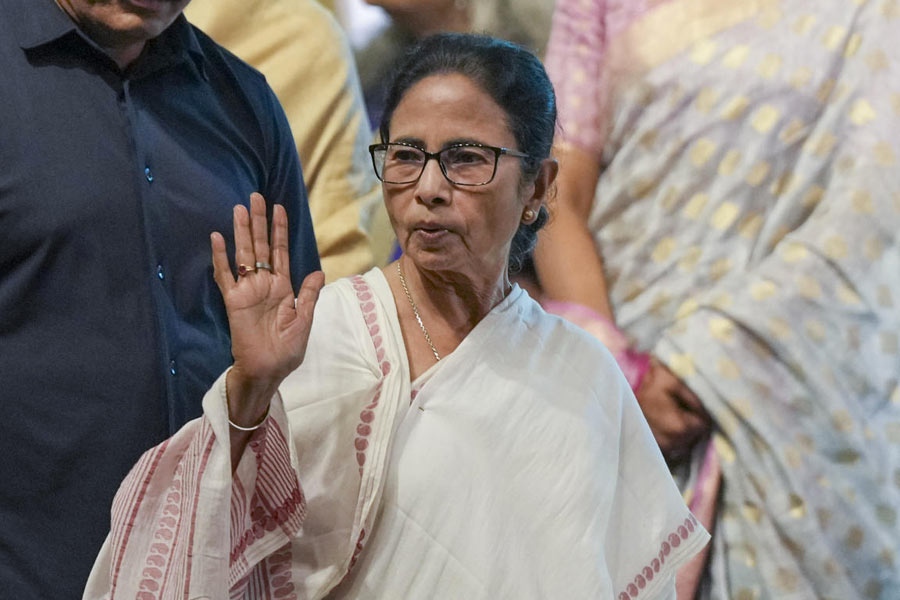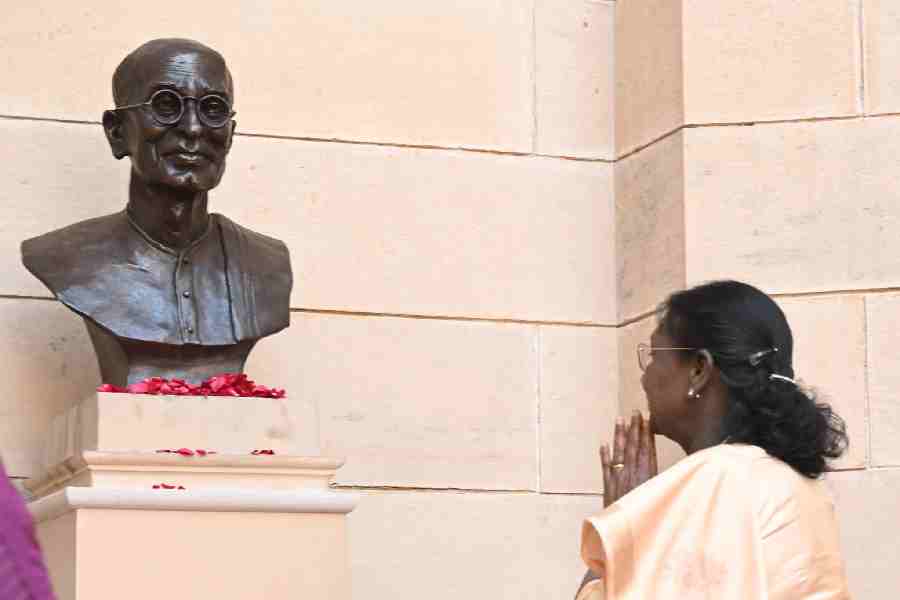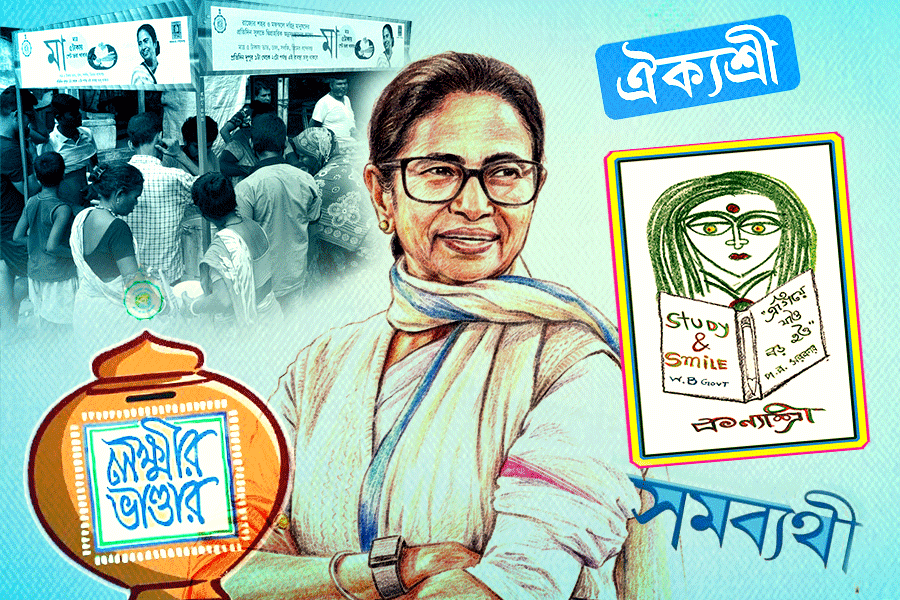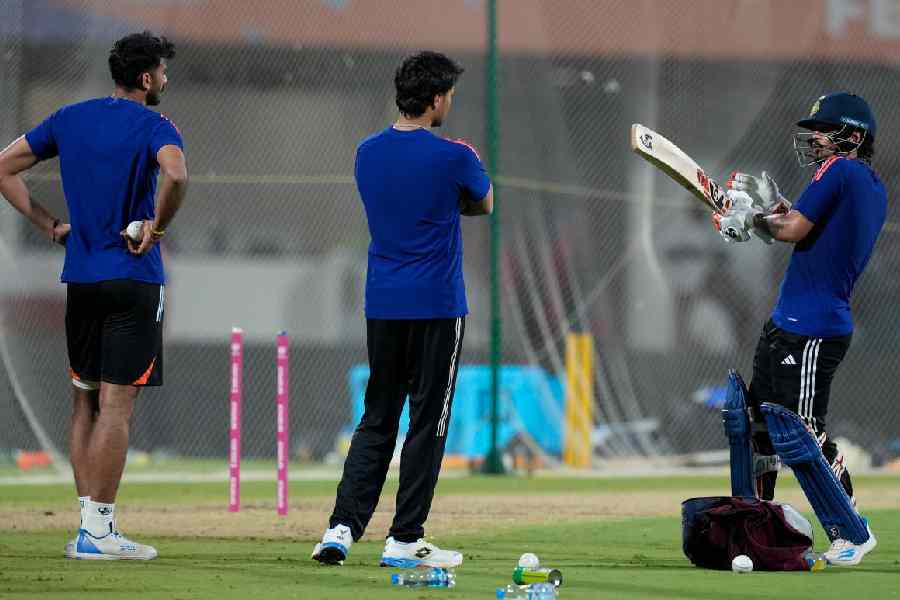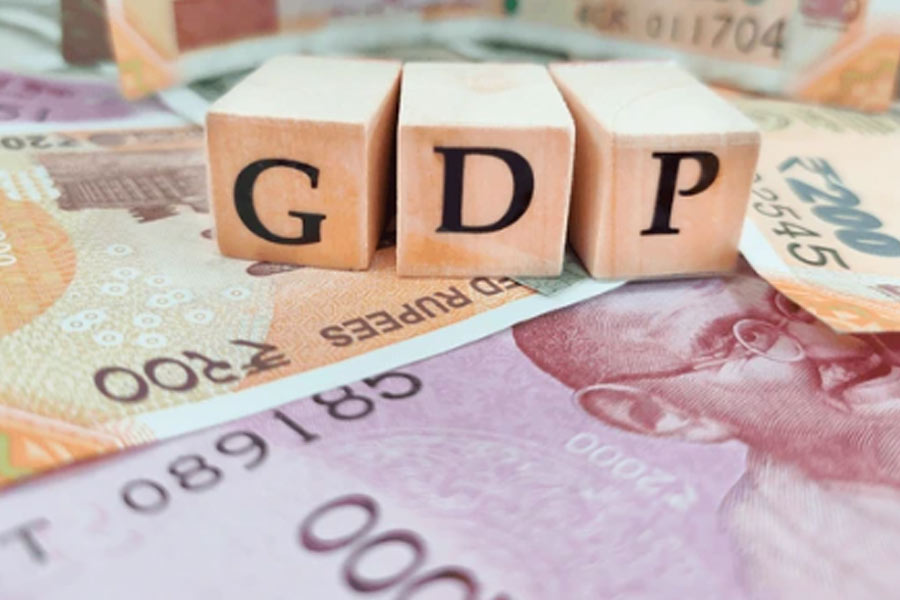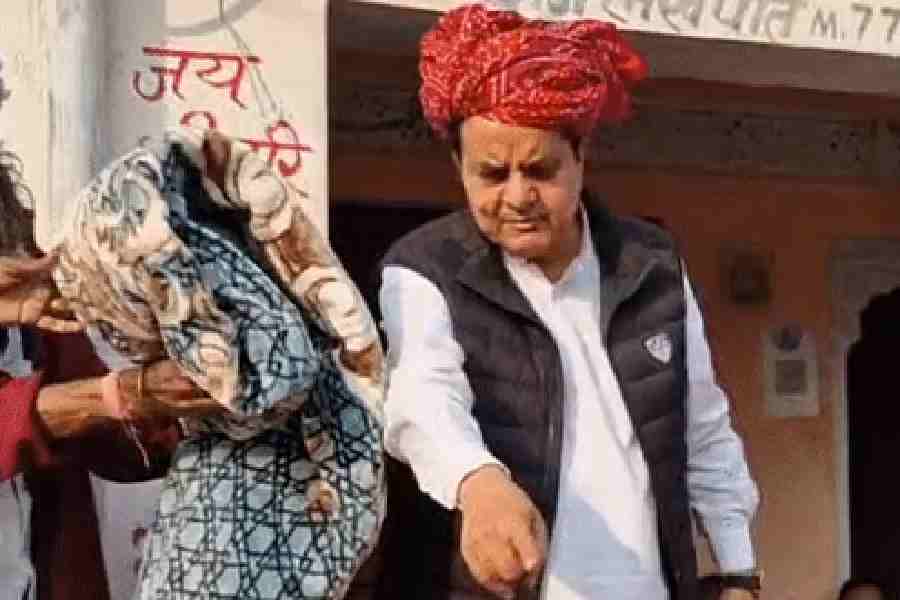 |
It was, you’d have thought, the time for arithmetic. New Delhi’s khadi clan was doing just that — calculating the pluses and minuses, the permutations and combinations that would save or sink the Central government. One man, nice and natty in his Fabindia kurtas, though, was not looking at figures — he was, instead, thinking of rhymes.
On Thursday, Roli Books launched Union minister for science and technology, Kapil Sibal’s book of verse, titled I Witness: Partial Observations. The reviews are mixed, but Sibal doesn’t give a damn. “I don’t care — if some people like to read esoteric blank verse, so be it,” he says. “Let people who want to read it, read it; those who don’t want to, don’t have to.”
But clearly a lot of people do want to read the poems — the launch at the Maurya was attended by, among others, Samajwadi strongman Amar Singh, Delhi chief minister Sheila Dikshit, Congressman Ahmed Patel and National Security Advisor M.K. Narayanan. Finance minister P. Chidambaram and Montek Singh Ahluwalia of the Planning Commission were there as well, no doubt cheered by a poem called Inflation: Inflation is/Bound to abate/With corrective steps/Sooner than late.
North Block can thank Khushwant Singh for the book. Three months ago, Sibal had recited some of his poems to the columnist and former editor. Singh urged him to get them published, and as luck would have it Roli Books owner Pramod Kapoor walked into Singh’s house just then.
“Khushwant said, ‘Pramod, he is great. Why don’t you try him?’ Pramod said, ‘But I have never done a poetry book in my life,’ and Khushwant said, ‘Why don’t you let him hear some?’” So the coy poet recited a few lines from a work called Twenty20 (Slashes of colour/A rush of blood/The twenty20 game/Power-packed drama/Triumph and trauma/Cricket is not the same! — the exclamation mark is his). The next morning Kapoor called him to say that Roli was willing to publish the book. The rest may, well, not quite be history — but it’s an attractive book with an evocative Picasso cover.
Within Kapil Sibal’s portly and seemingly genial frame lurks an alter ego always waiting to spring out of its formal confines. When he was spouting Shakespeare in Delhi’s toffee-nosed St Stephen’s College, his heart beat for the Left. When he was attired in formal blacks as a senior Supreme Court lawyer, the Congress’s white, orange and green lurked within. And just when you thought of him as a prosaic and pragmatic minister, he emerged as a caustic and occasionally romantic poet.
“I used to write off and on — for fun, and for myself. I never thought of publishing, certainly never a poetry collection,” he says, sitting in his plush drawing room in his central Delhi ministerial bungalow, as Souzas and Husains peer at him from the walls. “It was really to communicate with myself that I started writing. Then I thought it was time to communicate with others.”
Sibal’s fingers play with his neat little mobile phone as he speaks. But then, that’s how he found his muse. On long international and domestic flights — and while on the road — he would keep typing out rhymes on his mobile. “I’d say 95 per cent of the poems were written there,” he says.
Sixty-year-old Sibal, however, has always been in love with words. When he was studying history — a subject he later taught in Delhi’s Hindu College — he was a leading member of Stephen’s Shakespeare Society, the star in plays such as Richard III and Julius Caesar. He acted with Brinda Karat, then Brinda Das and a student of Miranda House — and was the envy of his college, as he once said, for getting to hold her close on stage for a while.
“I was fond of plays and reading poetry. I always liked rhyme and rhythm — Shakespeare, Wordsworth, Robert Frost, Ogden Nash, e.e. cummings. I read Eliot and Prufrock too — but it’s a bit beyond me,” he says.
For Sibal, it all started with the family, who were refugees from Pakistan. Sibal’s lawyer father, now 94, moved to Shimla, where the High Court was placed, and then to Chandigarh after the division of Punjab. Young Kapil finished his schooling from Chandigarh, and recalls living in the midst of literature. “Literature was central to our lives. I grew up reading not just English poetry but Urdu poetry as well — Ghalib, Iqbal, Faiz,” he says.
His brothers wrote poetry, but Sibal didn’t — at least not then. He didn’t follow in the footsteps of his three brothers either, two of whom went on to join the Indian Administrative Service, and one — Kanwal Sibal — the Foreign Office. “But I always liked law and wanted to be a lawyer. I also always wanted to be in politics,” he says.
Sibal dabbled in college politics — and stood for and won student union elections. “I was certainly oriented towards the Left, even extremely oriented, I would say. If you look at my poetry, you will find that there is a lot of empathy for those who don’t have it so good. I always feel the economic model needs to change to bring succour to the poor. At the centrality of all good governance are ordinary people. And unless we take care of them, we won’t reach anywhere,” he says. “I feel that today, and I felt that in my college days.”
Karat, now a member of the CPI(M) politburo, was a friend from those days, but — he hastens to add — not a close friend. The old ties with her didn’t help in soothing the ruffled feathers of the Left, which withdrew support to the United Progressive Alliance government last month, leading to a fractious trust vote — which, incidentally, figures in another of his poems.
“Politics is a great path divider, it takes you away from the trodden path,” he says. “But contemporary politics is all about jod tod — so you move in the direction where your best interests lie. You don’t lose your friendship, but you lose each other because your ways are different. It does impact on the personal relationship.”
He is beginning to sound like the esoteric blank verse he so derides. But his poetry, he explains at the book launch, may well deal with politics; the voice, however, is never that of a politician. “When I’m in politics, I stick to the party line; when I’m a poet, I don’t.”
Sibal’s baritone is mesmerising — the more so when he is reciting his poetry, now also out on a CD. He reads out some of his work at the book release, and the effect is electric. His depositions in court were apparently so sonorous and dramatic that young lawyers used to attend them just to pick up a few tips on the power of declamation.
Sibal’s two sons are lawyers too — one has been fighting on behalf of exiled artist M.F. Husain and the other is the lawyer for Coca Cola. “So we fight both causes at the same time,” he laughs. His first wife, Nina — who was in the IFS — died in 2000, and Sibal is now married to Promila, a businesswoman.
Sibal’s love poetry includes an ode to Promila’s eyes, and reminisces of the time he and Nina spent outside her college gate, in pursuit of love, but pursued in turn by the college chowkidar.
Clearly, Sibal has a poem for every occasion. As a leading member of the UPA government, he has written a verse on the 123 agreement. Being a lawyer, he has a rhyme on Pota — the Prevention of Terrorism Act. As the minister for science and technology, he includes a poem called Bio-tech in his compilation. And the first minister to have visited the Antarctica — there is an awkward looking penguin model gawking at visitors in the ante room — writes in the Unknown Continent: Antarctica/It beckons us/We must just/Let it be.
The collection doesn’t include a verse on cooking — something that he enjoys (having just prepared a multi-course Chinese meal for his friends). But there is a second volume coming up. And Sibal, no doubt, is looking for inspiration. What rhymes with Prakash? Fracas is a good option. With Singh? No, Bling won’t do, and King has already been taken. Rhyming, he will tell you, is no easy task. And let the critics scoff.


